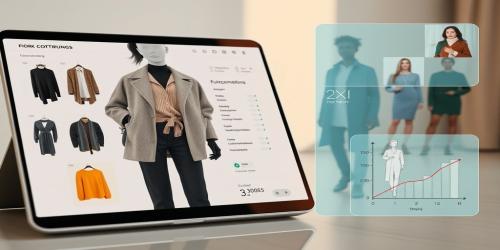AI for Organizing and Managing Big Data in Personal Life
Introduction
In the digital age, our personal lives generate vast amounts of data—photos, emails, documents, fitness trackers, and more. Managing this data manually can be overwhelming, but artificial intelligence (AI) offers powerful tools to help organize and make sense of it. From decluttering your inbox to optimizing your schedule, AI is transforming how we handle personal information.
The Challenge of Personal Big Data
With the rise of smartphones, wearables, and cloud storage, individuals now produce terabytes of data annually. Photos, messages, health metrics, and financial records pile up, making it difficult to find what you need when you need it. Traditional methods like folders and manual sorting no longer scale effectively, which is where AI steps in.
How AI Simplifies Data Organization
AI-powered tools use machine learning to categorize, tag, and prioritize data automatically. For example, photo apps can recognize faces and locations, while email filters learn which messages are important. These tools save time and reduce stress by handling repetitive tasks intelligently.
1. Smart Email Management
AI-driven email platforms like Gmail and Outlook use algorithms to sort emails into categories such as Primary, Social, and Promotions. They can also suggest quick replies, flag important messages, and even unsubscribe from spam—freeing you from inbox clutter.
2. Photo and Media Organization
Apps like Google Photos and Apple Photos leverage AI to tag images by people, places, and objects. You can search for "beach vacation 2023" or "dog pictures," and the AI retrieves relevant photos instantly, eliminating hours of manual sorting.
3. Personal Health and Fitness Tracking
Wearables and health apps analyze data from steps, heart rate, and sleep patterns to provide actionable insights. AI can detect trends, suggest workout plans, and even alert you to potential health issues based on anomalies in your data.
4. Financial Data Optimization
AI-powered budgeting apps like Mint or YNAB (You Need A Budget) categorize expenses, predict future spending, and offer savings recommendations. By learning your habits, these tools help you make smarter financial decisions.
The Future of AI in Personal Data Management
As AI continues to evolve, its applications in personal data management will become even more sophisticated. Imagine AI assistants that proactively remind you of deadlines, suggest meal plans based on your grocery purchases, or automate document filing with near-perfect accuracy. The possibilities are endless.
Conclusion
AI is no longer just a corporate tool—it's a personal assistant that can revolutionize how we organize and manage our data. By leveraging AI-driven solutions, we can reclaim time, reduce stress, and focus on what truly matters in our lives. The future of personal data management is intelligent, seamless, and empowering.










